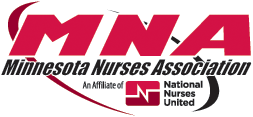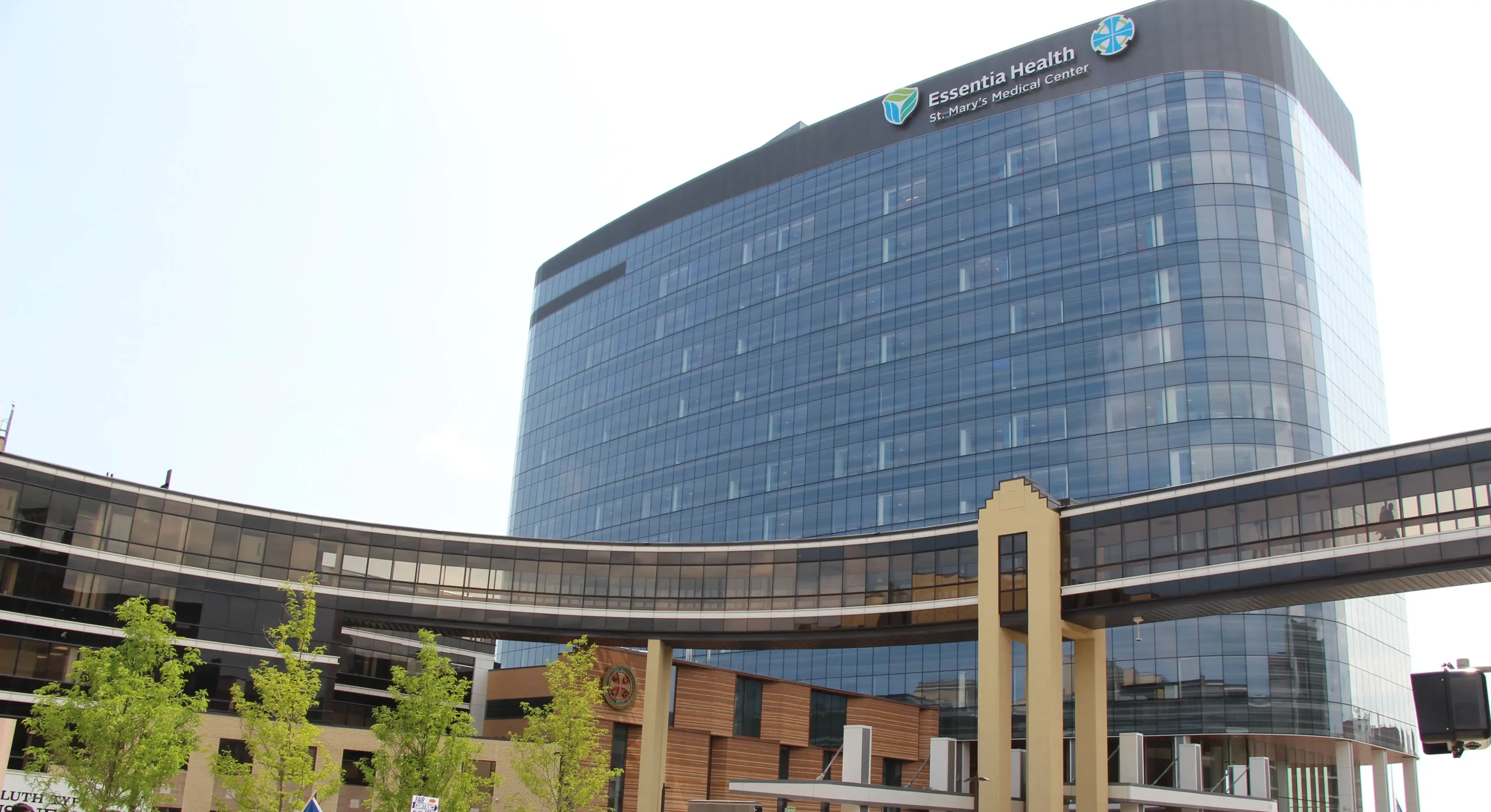By Veronica Jacobsen
Reprinted with permission from Baby Love Minnesota blog. The author is an instructor in childbirth classes. Information is available here: Here’s info on my classes: http://www.babylovemn.com/classes-at-babylove/
I have been blogging for almost exactly 5 years in this space, and maternity care outcomes and transparency hold a special place in my heart. I don’t know if anyone gets as excited as I do when new info comes out. After a lot of thought over the weekend, I am posting this. Buckle in.
The Allina nurse strike saga continues. In June, the nurses went on a 7 day strike. Back then, I had concerns about the safety of giving birth with replacement nurses. Now that a strike date of September 5th at 7am has been set, and after careful consideration, I can’t say this without enough emphasis: DO NOT HAVE YOUR BABY AT AN ALLINA HOSPITAL DURING THE STRIKE. CHANGE PROVIDERS AND/OR PLACE OF BIRTH NOW!!!!!
I may not make any friends with the system’s physicians or administration, but the evidence is more than circumstantial to back up my warnings. While I understand the political forces at stake with public opinion of unions in general, staffing ratios and staff safety are always issues at Allina. And in fact, the National Labor Relations Board ruled that the Minnesota Nurses Association’s complaints about unfair labor practices were with merit.
Historically, Allina’s hospitals have had some of the highest cesarean rates in the Twin Cities Metro Area. Recently, a change was made and births are no longer done at Unity Hospital, but in 2014, the c-section rate for Abbott Northwestern was 30.2%, it was 28.3% at Mercy Hospital, and 30.4% at United Hospital; all of these are above the state average of 26.9%. In 2014, 11,207 births occurred at Abbott, United, Mercy, and Unity–an average of 217 per week. With such high volume, Staffing problems will hit maternity services hard. Lactation services are sure to be hit hard as well, as union IBCLC RNs will also be on strike, so moms will have a very hard time getting appropriate breastfeeding help.
The last strike, which was limited to 7 days, cost Allina $20 million. On social media pages, nurses from other parts of the country are posting information they’ve received from staffing agencies recruiting workers to fill in for the striking nurses. Replacement nurses are being offered $6,900 per week and are not required to be licensed to practice in Minnesota. Additionally, because of such a high cost to replace nurses and because of the very large number of striking nurses (4,800), there is absolutely no way that Allina’s hospitals will have adequate staffing– in fact, only 1,400 nurses were brought in during the strike in June. A hospital system with a whopping 71% reduction in nursing staff is without a doubt incapable of providing safe care. While this creates a dangerous situation for all of the hospital units, because safe staffing ratios are so high– 1:1 nurse to patient ratios during labor and birth, and 1:3 nurse to patient ratios postpartum, there’s no doubt that having less than 1/3 the normal number of nurses will put mothers and babies in grave danger.
Very specifically, replacement nurses can’t provide appropriate care in the “Mother Baby Centers” of Allina hospital because:
- Nurses will be much slower at charting in a system that they aren’t familiar with. Even if the nurses are familiar with EPIC, the most common EHR in our area, each organization has their own unique configuration. In births, charting is extensive– many, many things need to be documented in real time, taking away the nurses’ ability to provide patient care.
- Maternity Care practices in our area are very different from those in other parts of the country. We tend to have better outcomes than in other parts of the US–meaning the replacement nurses will probably be used to maternity care practices that are considered outdated or unsafe. So, for instance, while Allina hospitals have Nitrous Oxide as an analgesic option for birth, it’s still rarely used outside of our metro area. Because the replacement nurses won’t have the training needed to provide Nitrous, parents will very likely find that options they expected to be available aren’t.
- Patients with high-risk pregnancies are very likely to have replacement nurses that lack the higher training needed to keep medically fragile conditions under control.
- Staff morale in hospitals during strikes always takes a major hit, distracting from the real need-providing patient care.
- Even if the nurses were perfectly trained to work as Labor and delivery and postpartum nurses, even if they knew exactly how to use the Electronic Health Record System– In no way, shape, or form will there be nearly enough nurses to provide safe care.
When I previously wrote about my concerns, I wasn’t sure what birthing mothers would end up experiencing. However, last week, I made contact with one mother who gave me permission to share her story. Her name is Lisa, and her story follows:
I planned birth at Abbott due to VBAC. I was aware of the strike and very concerned that I would go into labor during that time, but I was planning to birth with my midwife and with my doula and I was reassured that I have nothing to worry about. In fact I’m going to say what no one said to me when I was worried about the strike: RUN! I know everyone might not agree with that, but I speak from personal experience. I moved back from Alabama so that I could receive the care we’re accustomed to here in MN, and I still ended up with nurses from states where I would never give birth. My due date was 6/19. Same day as the strike. Water broke 6/16. Labor never started so I went in 6/18 at 4am for Pitocin.
24 hours later [early in the morning of June 19th, the day of the strike], I’m laboring hard on Pitocin. I have a wonderful supportive Allina nurse. The best nurse I’ve ever had, but there’s a tension in the room so thick that you could cut it with a knife. We all know she has to go home at 7am, when her shift ends and the strike begins. In just 3 more hours. It was awkward. There was an elephant in the room. I considered asking her if she would stay with me but that seemed awkward and inappropriate.
So 7am came and she said “I’m sorry, I have to go now. ”
After that I had a stream of nurses. “I’m you nurse now. ..no I’m your nurse now. No I’m your nurse again.” I was in the shower and they kept interrupting me. I had a doula and a very supportive husband. I just wanted some privacy at this point, I wasn’t asking for extra support.
At another point I had nurses just standing around me with their arms crossed. Just watching me. Like they had never seen a woman labor before. Like I was a fucking zoo animal!!!!
At another point, one nurse was giving another nurse a tour of the room. “Here’s the warming station…” and then the two of them stand in front of the computer and discuss how the medical system works. I just hear whispering and taping on the keyboard. I’m butt ass naked, standing at the foot of my bed, huffing nitrous every 2 minutes for 90 seconds. I can barely speak. I’ve been at this for 30 hours. I wave my hand at them “They need to go. They’re distracting me.” I’m begging/irritated. My midwife then shooed them away.
This still pisses me off. I shouldn’t have to protect my own birth space like this. My midwife was there and my doula and my husband. But no one said anything. I had to ask them to leave.
It’s no surprise that soon after this I lost my ability to handle my Pitocin induced contractions. I asked for an epidural. Then my contractions went to 18 minutes apart and I ended up with a cesarean, again. Cesarean was 6/19 at 6pm.
They surgery itself had some parts that were less than what I would expect from Abbott and my post surgery care was grossly negligent.
I actually had to page my midwife on call during the overnight hours. When the baby was born (unplanned cesarean ) we were told he could stay with us but would need to have his temp closely monitored due to prolonged rupture of membranes. But they never checked his temperature the entire night. Nor did they check my bleeding on the night shift. It literally felt like everyone had left the hospital, apocalypse. When she [the midwife] called me back I told her that I wanted to transfer with my baby to another hospital because no one was taking care of us. I paged her just after 7 am. I knew I was supposed to have a new nurse and still no one had come to check on me or the baby. I told her I was scared because we weren’t being monitored and wanted us to be transferred to another hospital, by ambulance if necessary. She said “hold tight, I’ll see what I can do and I’ll call you back.”
It’s my belief that when she hung up with me she called up there to the hospital and raised hell, because within a few minutes I has my day nurse and the charge nurse there. They helped me clean up the blood that was dried from my waist down, changed my sheets and got me some food. And filled out the white board. There was definitely a turnaround of my care at that point. My midwife called me back about 8am on June 20 and asked if I still wanted a transfer, and told me she could make it happen. At that point I said we had a new nurse and I felt safe again. I told her we would stay.
Hiring a doula won’t be enough. Every single birthing family with babies due in the next month needs to change plans on where to give birth, which likely will result in also changing providers, and they need to do it NOW. Changing is easy– I’ve outlined the process before. If you’re late in the game, you may need to change to a Family Med Provider who does OB care or an OB group. If you need help sorting your options, I’m happy to help. Call or email me– 651-200-3343 or veronica@babylovemn.com.
And Allina union nurses? I have your back. Allina’s C-suite? You are putting people at risk with your ongoing actions, and you need to be ashamed of yourselves.
Veronica
DONA-Certified Birth Doula, Certified Lactation Counselor, Child Passenger Safety Technician, Lamaze Certified Childbirth Educator, Fellow of the Academy of Certified Childbirth Educators
Opening BabyLove in September of 2011 has allowed me to build a space where all families can come to get good information in a caring, welcoming environment. I have found that not only do I love teaching more than ever, but I also really love running a business. Hopefully my passion for every aspect of BabyLove shines through.
I live in Richfield with my husband, and I am a mother of a two great children. When I can steal a few free moments, I love to go on adventures with my family, cook, garden, thrift, can, and craft.



